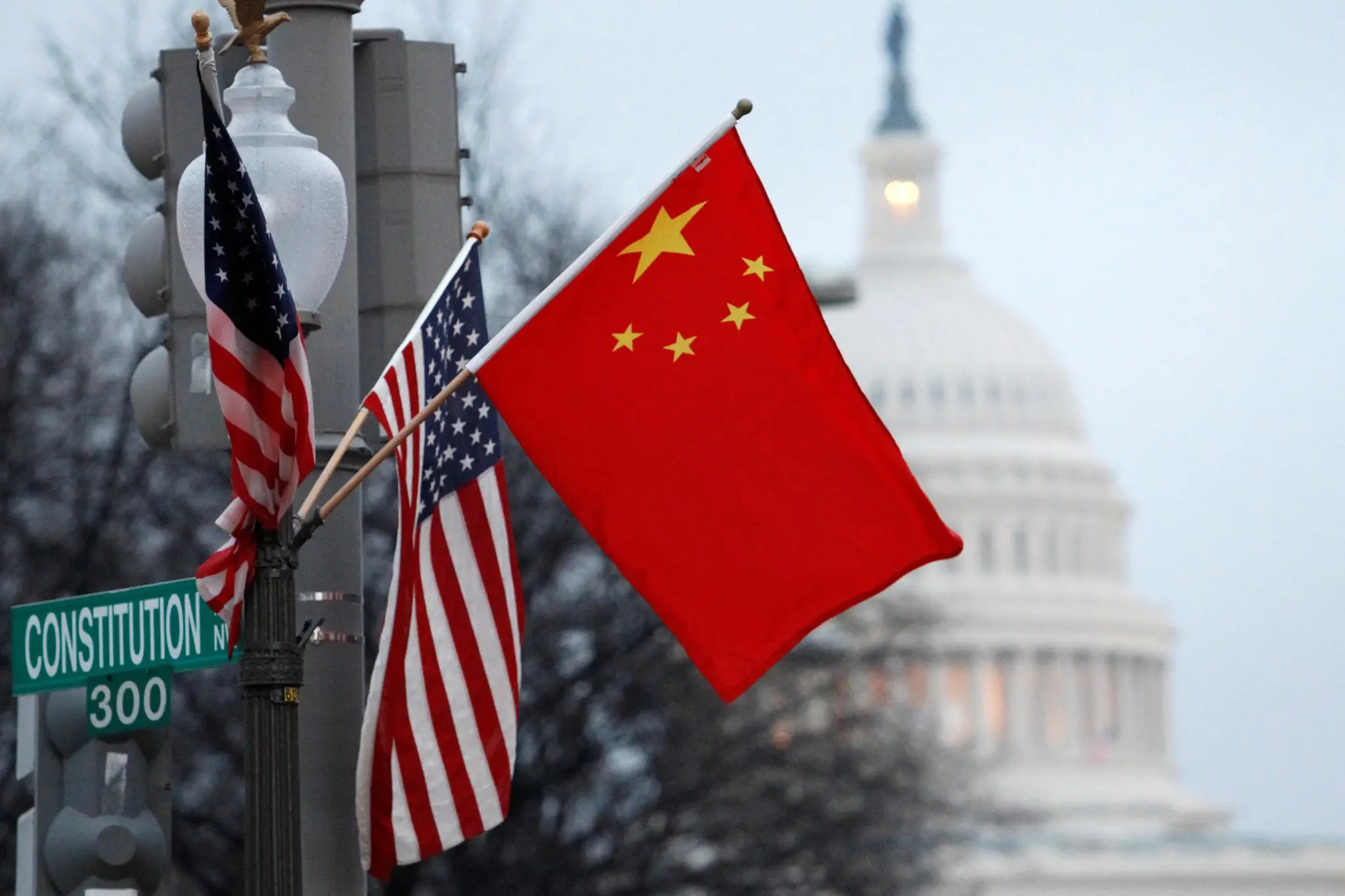China Demands Tariff Rollback as Global Trade Strains Deepen
06.05.2025 17:00 2 min. read Alexander Stefanov
Global markets are feeling the strain as U.S. trade policy under President Donald Trump continues to send ripples through the world economy.
Once powered by relatively open trade, international commerce is now tangled in uncertainty, with companies slashing forecasts, reevaluating supply chains, and warning of job losses.
The root of the disruption: sweeping tariffs imposed under Trump’s banner of economic nationalism. While promoted as a way to boost American industry and reduce trade deficits, these measures have instead triggered a wave of retaliation, particularly from China, the EU, and Canada—damaging international production networks and raising costs for businesses across borders.
Cyrus de la Rubia of Hamburg Commercial Bank warns that the aftershocks may worsen, while Shilan Shah of Capital Economics sees no sign of tariffs easing, particularly in relation to China. A recent analysis by economist Turalay Kenc highlights how these policies destabilized financial markets, citing a dramatic spike in the Global Economic Policy Uncertainty Index, which jumped from 183 to 460 in less than a year.
Kenc argues that the tariffs, far from being corrective, acted more as a zero-sum tactic—benefiting the U.S. at the expense of its trading partners and fragmenting long-established supply chains in the process.
Meanwhile, tensions with China remain high. Beijing is reportedly weighing a U.S. proposal to discuss tariffs after both sides slapped steep duties on each other’s goods. But China’s Commerce Ministry remains firm, accusing Washington of using pressure tactics and warning that negotiation without genuine intent won’t succeed. Chinese officials have urged the U.S. to roll back unilateral tariffs and acknowledge what they call policy missteps.
Despite the standoff, the U.S. has hinted at progress with other countries, including India, Japan, and South Korea, as it looks to prevent additional trade disputes.
-
1
Robert Kiyosaki Predicts 2025 “Super-Crash,” Urges Hoarding Gold, Silver, and Bitcoin
23.06.2025 13:31 2 min. read -
2
Billionaire Slams Meme Stock Hype and Sounds Alarm on U.S. Fiscal Health
15.06.2025 18:00 2 min. read -
3
Nassim Taleb Says Global Trust Is Shifting from the Dollar to Gold
22.06.2025 17:00 1 min. read -
4
Billionaire Investor Sees Dollar Crash If Key Support Breaks
18.06.2025 15:00 1 min. read -
5
Geopolitical Shockwaves Hit Ethereum Hard While Bitcoin Stays Resilient
22.06.2025 16:21 1 min. read
Robert Kiyosaki Predicts When The Price of Silver Will Explode
Robert Kiyosaki, author of Rich Dad Poor Dad, has issued a bold prediction on silver, calling it the “best asymmetric buy” currently available.
U.S. PCE Inflation Rises for First Time Since February, Fed Rate Cut Likely Delayed
Fresh data on Personal Consumption Expenditures (PCE) — the Federal Reserve’s preferred inflation gauge — shows inflation ticked higher in May, potentially delaying the long-awaited Fed rate cut into September or later.
Trump Targets Powell as Fed Holds Rates: Who Could Replace Him?
Federal Reserve Chair Jerome Powell is once again under fire, this time facing renewed criticism from Donald Trump over the Fed’s decision to hold interest rates steady in June.
U.S. National Debt Surge Could Trigger a Major Crisis, Says Ray Dalio
Billionaire investor Ray Dalio has sounded the alarm over America’s soaring national debt, warning of a looming economic crisis if no action is taken.
-
1
Robert Kiyosaki Predicts 2025 “Super-Crash,” Urges Hoarding Gold, Silver, and Bitcoin
23.06.2025 13:31 2 min. read -
2
Billionaire Slams Meme Stock Hype and Sounds Alarm on U.S. Fiscal Health
15.06.2025 18:00 2 min. read -
3
Nassim Taleb Says Global Trust Is Shifting from the Dollar to Gold
22.06.2025 17:00 1 min. read -
4
Billionaire Investor Sees Dollar Crash If Key Support Breaks
18.06.2025 15:00 1 min. read -
5
Geopolitical Shockwaves Hit Ethereum Hard While Bitcoin Stays Resilient
22.06.2025 16:21 1 min. read


